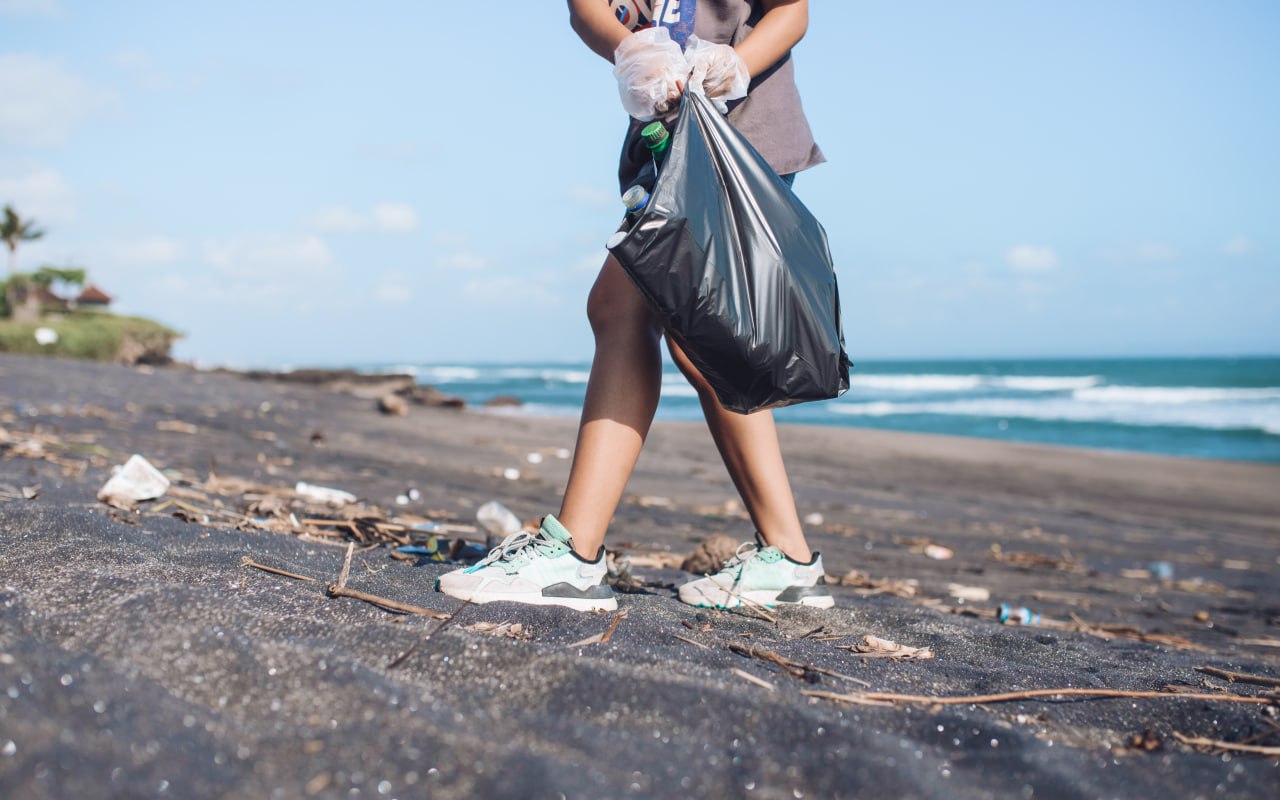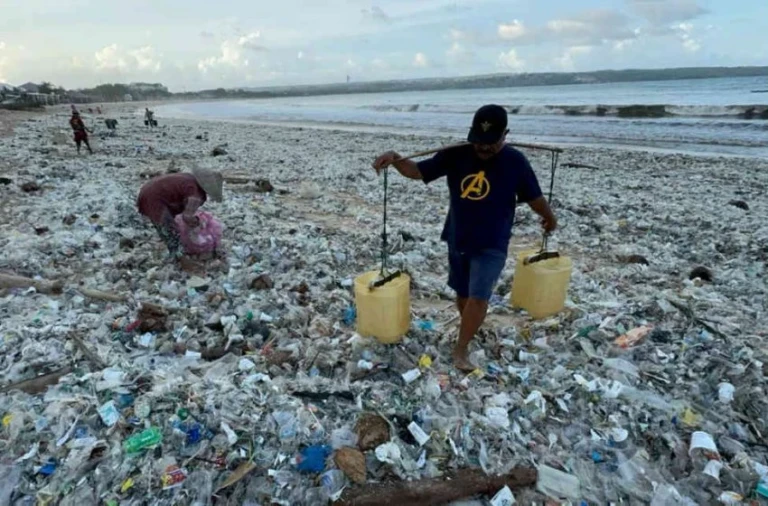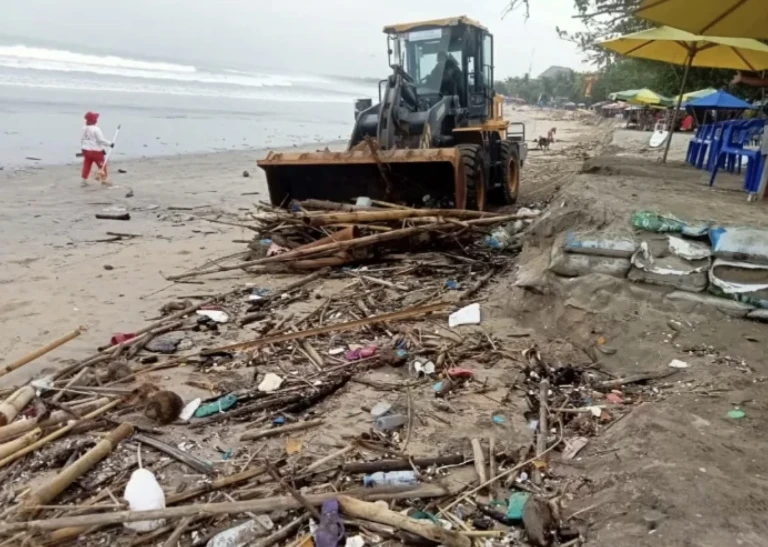
A layer of trash, 10 centimeters thick, obscuring the sand—a consequence of a recent storm that hit Bali. Piles of plastic washed up on Kedonganan Beach near the fish market. This isn't a record, as in 2015 and 2016, there was even more trash. Back then, the plastic cover reached a thickness of 50 centimeters.
Over the years, the work to clear such debris in Bali has been streamlined. The Department of Environmental Protection and Hygiene (DLHK) responds immediately, dispatching people and heavy machinery to the scene. Typically, within a few days, the bulk of the waste is cleared away, unless the ocean brings in fresh batches.

Recently, beaches in Kuta, Legian, and Seminyak were cleaned. Most of the debris there was organic—branches, tree trunks, fallen leaves. But they also found a significant amount of plastic. Environmental Protection Service specialists were also sent there.
A total of 600 people are involved in cleaning up Bali's beaches these days, with 7 loaders deployed. Only after Nyepi did they remove 60 tons of waste from Seminyak Beach, over 200 tons from Legian Beach, and 150 tons from the coastline of Kuta Beach. The recovered logs were sent for grinding and processing into sawdust (which local residents can get for free if needed). The remaining plastic was taken to the Suwung Landfill, Bali's largest open landfill.
All this trash ends up in the ocean not only from boats, ships, and ferries. The majority of plastic is brought in by rivers. During the rainy season, they overflow and carry away everything people left on the banks instead of disposing of it properly.

Yes, the garbage problem currently doesn't have a significant impact on tourism. Travelers either have become accustomed to the fact that the beach is not very clean at this time of year or simply don't notice the scale of what's happening (because the most popular locations are still trying to clear up promptly). However, the events of the past few days have once again prompted the local community to consider a more comprehensive solution to the problem. And here the main question is how to teach the population to properly dispose of garbage.
Speaking earlier at the national event "Clean Action," the regional secretary of the Bali province, Deva Made Indra, called on the public to change their attitude toward waste. "In Bali, we are still working on the waste problem, building TPST/TPS3R [waste processing centers] in villages, hoping that they will be able to manage their own waste and not pollute other areas," he said. "We continue to encourage this because Bali is a window to global tourism. Thus, the waste problem is the most important issue that we are currently addressing," added Indra.
To save tourism, Deva Made Indra suggested that the public should perceive garbage not just as waste but as an opportunity for economic growth. He sees the solution to the problem in a nationwide transition to a circular economy. According to him, this would not only help clean up Bali, improve public health and the environment but also create more economic opportunities for the people of Bali.
This idea is also supported by Indonesia's Minister of Environment and Forestry, Siti Nurbaya. According to her, up to 36% of Indonesia's waste is still not properly processed. However, of course, a large amount of plastic is already getting a second life.
This is happening thanks to organizations like Desa Potato Head, a creative center for plastic recycling. There, entrepreneurs, creators, and designers create various products from what the ocean once threw ashore. For example, it could be furniture made from rattan (a natural material for weaving), decorated with recycled plastic bottles.

One of the most influential environmental groups in Bali is Sungai Watch. For the past three years, they have been cleaning rivers and jungles of garbage. And recently, they launched a new company - Sungai Design. So now they also sell products made entirely from waste.
Sungai Design states: "Our mission is to recycle as much river plastic as possible into beautiful, durable products to help fund river cleanups worldwide."
The provincial government of Bali seems to support the idea. Acting Governor of the island, Song Made Mahendra Jaya, personally participated in the cleanup of one of the rivers to see the scale of the problem with his own eyes. Afterward, he confirmed that 50-70% of the tourist tax funds will be allocated to waste management solutions.
Additionally, he called on the public to reduce the amount of single-use items and increase the use of recycled materials by creating new waste banks.
You can add one right now!